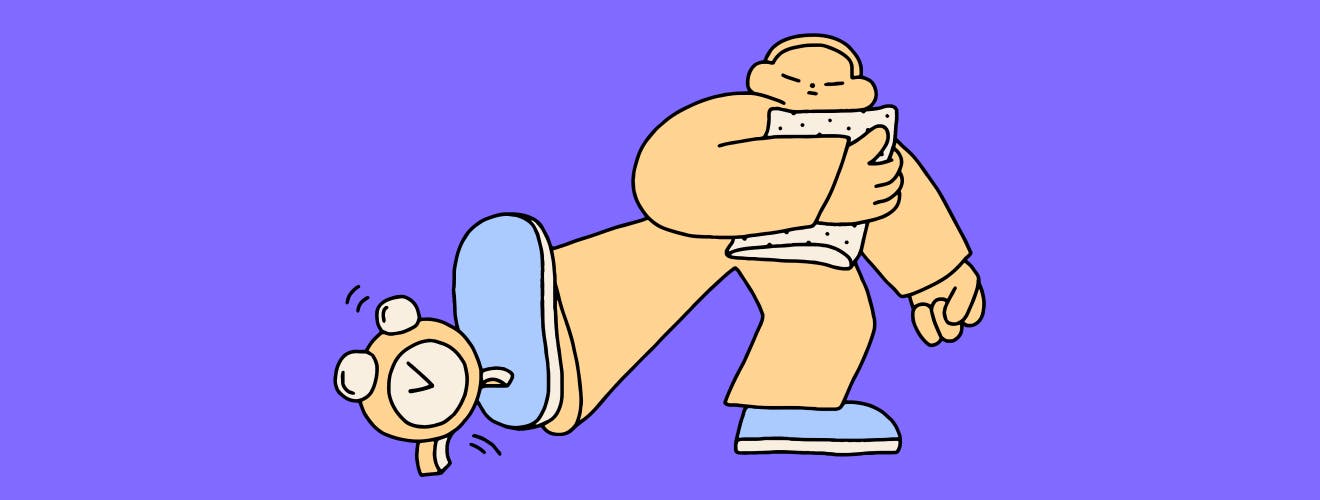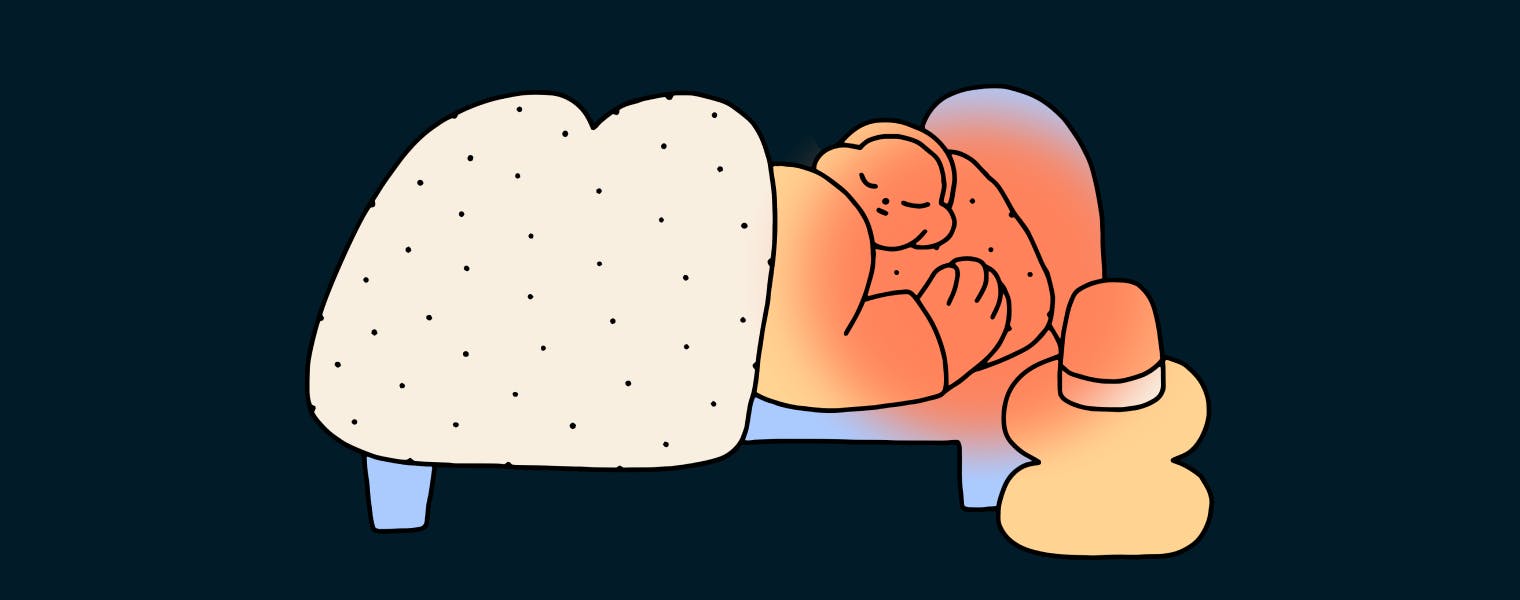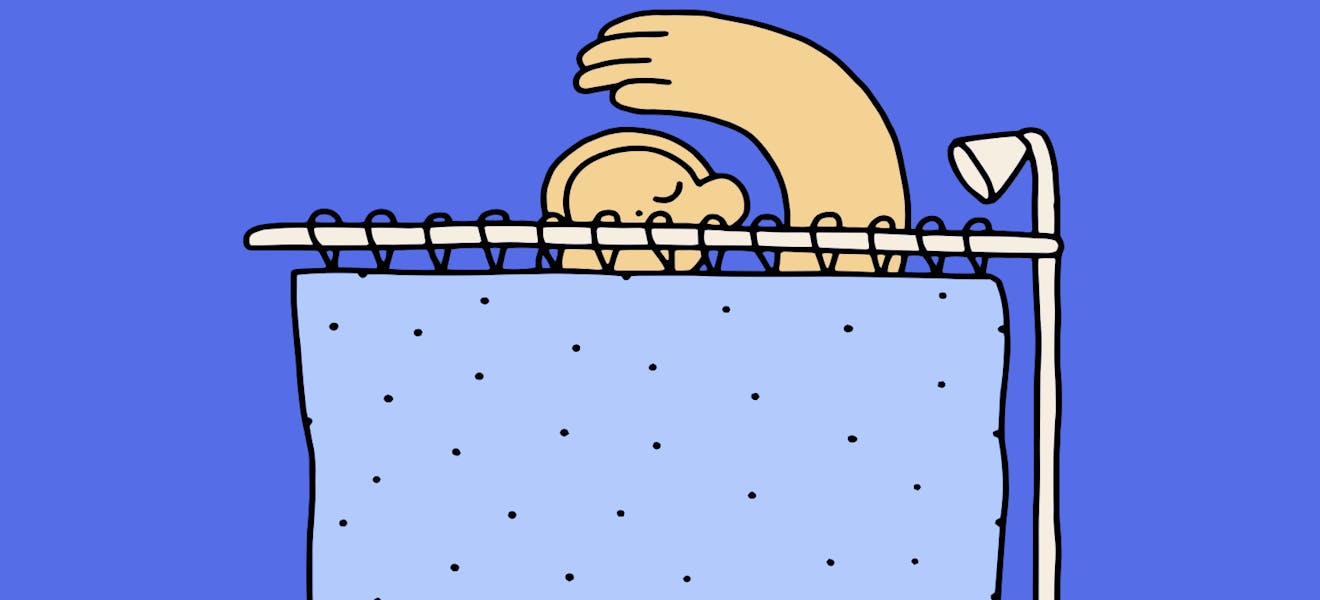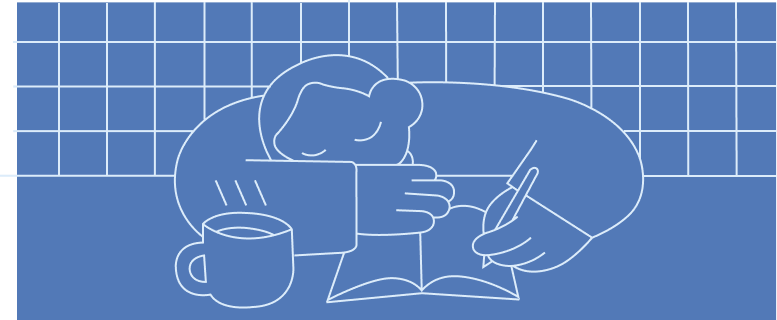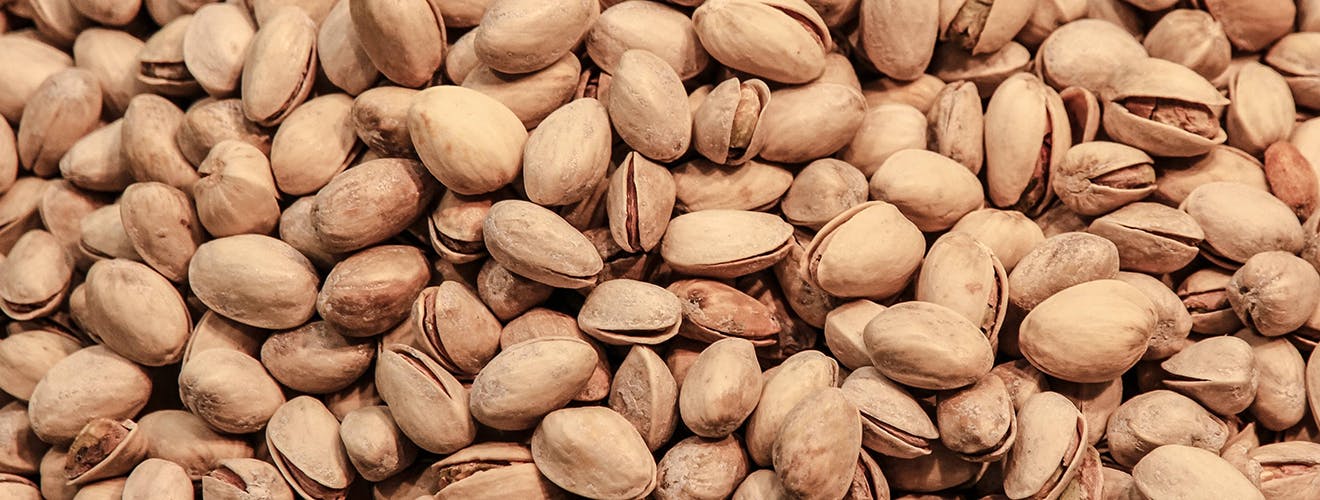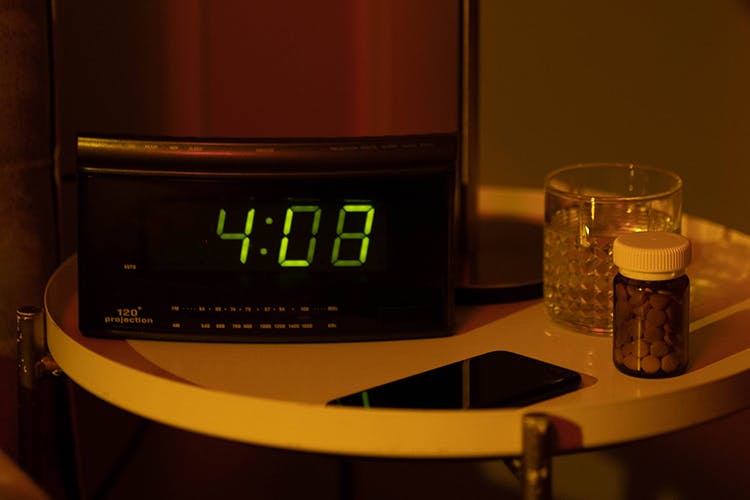9 Best Herbs For Sleep
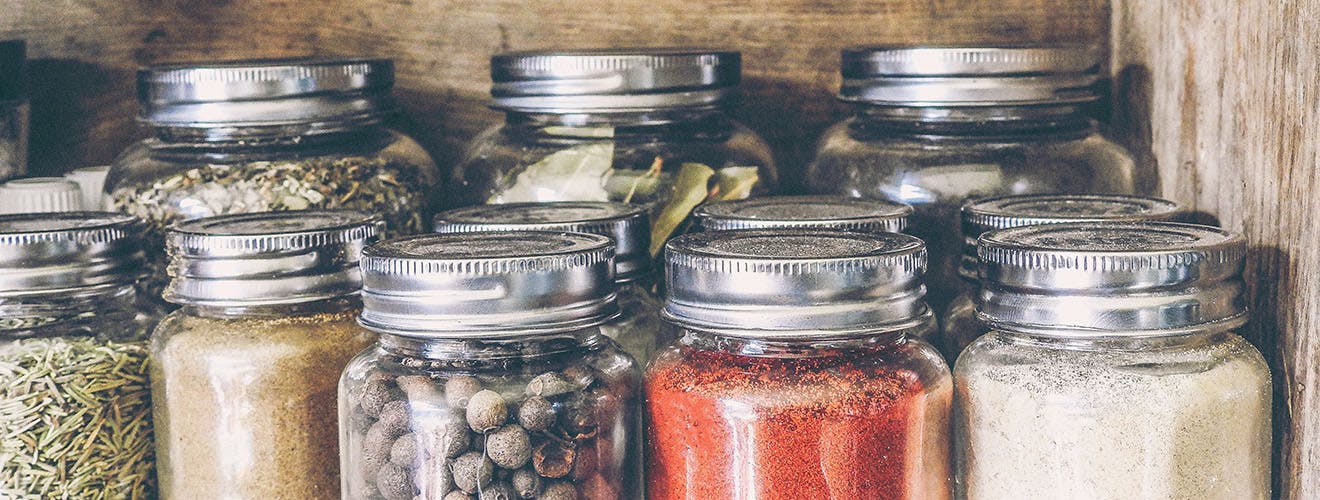
If you’re looking for a more natural way to fall asleep, herbs may be the answer. Though still effective, they have fewer side effects and are non-habit-forming, unlike other prescription sleep aids. In this article, we cover the importance of sleep, the best herbs for sleep, and how they help you achieve better sleep hygiene.
How Do Herbs Help You Sleep?
Different natural herbs have unique sleep-inducing properties that help calm the body and mind and reduce insomnia and stress. The reason why herbs work as natural sleep aids is that they are high in tryptophan, an amino acid responsible for the production of serotonin and melatonin.
That's also why they are able to improve and balance our serotonin levels. While more research is needed on how exactly serotonin regulates our sleep-wake cycle, we know that having healthy levels of serotonin is necessary for our brain’s pineal gland to produce melatonin, the hormone responsible for sleep.
Researchers found that herbs for sleep have the ability to naturally calm our nervous systems, relax muscles, and lower heart rates — all essential for achieving good sleep health.
9 Best Natural Sleep Aids
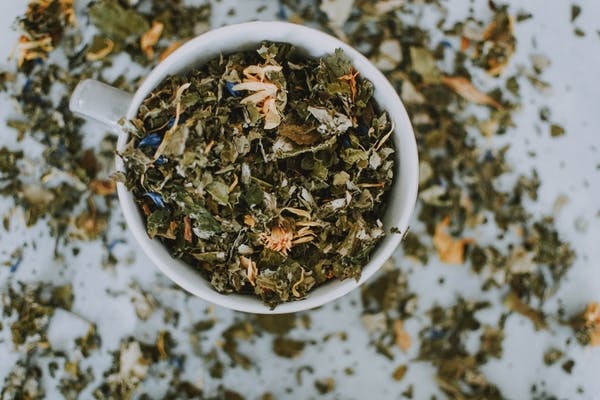
Prescription sleep medication may be effective in helping you get to sleep at night but they can have lingering side effects, like drowsiness and impaired cognitive function, which can last well into the following day.
Herbs, on other hand, can also help manage sleep-related problems like trouble falling, staying asleep, and improving sleep quality, without any hangover effects. They are easier to acquire since they don’t require prescriptions.
Herbs for sleep can help resolve sleep deprivation caused by a hectic lifestyle, anxiety, and stress, which affects the production of serotonin. Taking herbal and dietary supplements can also calm the nervous system and restore balance to serotonin levels.
All in all, there are many herbs available that can help induce sleep. Here are nine of the most popular natural herbs to consider:
Valerian Root
Grown in North America, Valerian root is one of the most commonly used sleep-promoting herbal supplements and herbal medicines. Since the 18th century, people have used Valerian root as a sleep aid, especially in the United States and Europe.
This herbal supplements home remedy is available as a mixture of chamomile, valerian, and lemon balm. It is often used to treat insomnia, stress, headaches, hypochondria, restlessness, and anxiety.
Randomized controlled trials also discovered that menopausal and postmenopausal women were able to get quality sleep and reduce sleep disorder symptoms after taking Valerian as a sleep aid.
This herb may help in improving sleep quality and promoting deep sleep. It also helps you fall asleep faster, providing a healthy sleep and better sleep without any side effects.
Lemon Balm
Lemon balm comes from the mint family. This herbal supplement has a citrus smell and is also available as an herbal supplement or tea.
Lemon is commonly used to improve mood and increase cognitive function, but it carries a number of additional benefits as well. This herbal supplement is commonly used to relax the nerves, relieve insomnia, stress and reduce anxiety. It can also be found in supplements that contain Valerian root.
As a balm, lemon can help treat cold sores, relieve indigestion, help treat nausea, minimize menstrual cramps, ease headaches, and lessens toothaches. However, it can also cause side effects such as stomach pain, vomiting, increased body temperature, painful urination, dizziness, skin allergies, wheezing, nausea, skin allergies, and stomach pains.
If you show sensitivity to lemon balm, ingest it with food and don’t take it on an empty stomach. You can also consult a doctor before using this supplement.
Chamomile Tea
Chamomile tea is known for its ability to regularize sleep patterns. This natural herb reduces anxiety, soothes digestion, and decreases muscle tension to help you fall asleep faster. It's commonly used in herbal medicine and herbal infusions.
Chamomile herbal tea enhances sleep quality and is a great self-care ritual for nights when you have trouble sleeping and need a healthy sleep. Incorporate it into your bedtime routine by making yourself a cup right after dinner.
Because of its powerful relaxing properties, this daisy-like herb is commonly regarded as a mild tranquilizer, sleep aid, or sleep inducer.
Chamomile hardly has any side effects, but it can cause severe allergic reactions, eye irritation, vomiting, and skin sensitivity in a small number of people.
Melatonin
Melatonin is a hormone that is naturally produced by the body. It's also commonly sold as an herbal supplement. Those who suffer from insomnia and other sleep disorders are often encouraged to take melatonin supplements.
Magnesium
Magnesium is a mineral that is essential for your heart health and brain function, both of which play a role in relaxing the body and promoting a good night’s sleep.
A shortage of magnesium can cause irritability, pain, constipation, anxiety, and muscle cramps. One study revealed that elderly patients with insomnia experienced better overall sleep and fell asleep faster by taking 500 milligrams of magnesium every day for two months.
If you think you may lack magnesium in your body, you can replenish your body’s supply by taking magnesium supplements or adding more magnesium-rich foods to your diet. Some types of food that can boost your body’s magnesium supply are dark chocolate, nuts, avocados, tofu, whole grains, edamame, and peanut butter among others.
Passionflower
Passionflower tea is made from the dried leaves, flowers, and stems of the Passiflora incarnata or maypop herb plant. This tropical flowering plant is commonly found in North America, with vines that can grow up to 25 feet long. It's known to help users de-stress and get better sleep.
Passionflower can be used as an herbal supplement and tea to decrease pain, eliminate insomnia-causing stress, end panic attacks, relieve anxiety, and attention deficit-hyperactivity disorder.
Drinking passionflower tea will help induce natural sleep faster. When combined with Valerian root, Passionflower becomes even more potent in treating insomnia. This popular herbal remedy is also used to calm the patient’s nerves before surgery.
Ashwagandha
Ashwagandha is one of the best medicinal herbs for sleep. The sleep-promoting properties in its leaves are known to help those who experience trouble sleeping at night or suffering from sleep disorders.
One study has shown that the natural herb Ashwagandha reduces anxiety, helps the body cope with stress, induces calmness, and helps produce natural and restful sleep.
Because it contains triethylene glycol, an active sleep-inducing component, ashwagandha acts as a sedative and is a great alternative to anxiety medications. It helps in relaxing and adjusting the body’s sleep cycle while naturally soothing the nerves.
Lavender
The pretty purple flowers of the lavender plant possess a soothing fragrance that encourages sleep. Lavender oil can calm the nerves, decrease anxiety, and stabilize one’s mood.
You can use lavender aromatherapy by adding a drop or two of lavender essential oil in your handkerchief or by placing a sachet under your pillow. You can also add several drops of lavender essential oil to your before bedtime bath to soothe the nervous system and help you get good sleep.
Mint
If you have trouble sleeping, mint is a natural aid that eases tension and prepares your body for sleep. A cup of mint tea can also do wonders for your digestive system by keeping bloating at bay.
Despite having fewer side effects, it’s still best to consult your doctor before using any herbs for sleep regardless of whether you have a medical condition or not and especially if you’re planning on taking them orally.
It’s also advisable not to take them continuously for longer than four months. A general rule of thumb is to stop using them for at least a week after every three weeks of use.
Though they do contribute to a good night’s sleep, you may eventually want to wean yourself off of herbal supplements, little by little, to achieve a deep natural sleep all on your own.
Ways To Take Herbs for Sleep
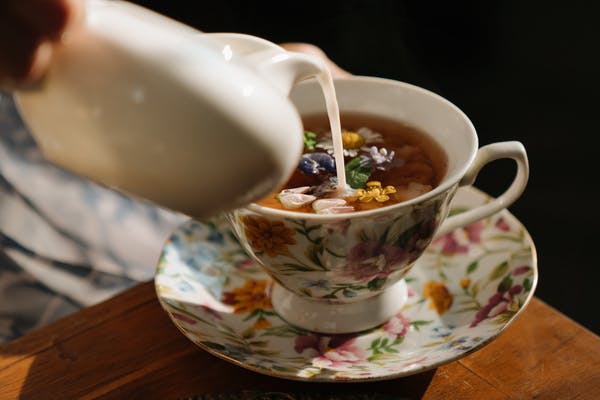
Capsules
Many people suffering from insomnia, shallow or interrupted sleep still prefer traditional capsules because of their convenience. Before taking any herb in capsule form, however, be sure to check the recommended dosage and consult with your doctor. You’ll want to ensure that the herb does not interfere with other medications you’re taking and won’t complicate other medical conditions that you may have.
Essential Oil Rub
Essential oils work by relaxing your mind and improving sleep quality. To use essential oils for improving sleep, you can add some to an oil diffuser, apply a few drops of diluted oil to your skin, or ingest it by adding it to food and drinks. If you want to take some orally before sleeping, it’s best to ensure that the oil is formulated for oral intake and to consult a medical professional first.
Linen Sprays
Herbal linen sprays are available in a variety of scents that can be used to help you sleep better and faster at night. Some scents that have been known to have a relaxing effect on people are lavender, vanilla, jasmine, rosemary, ylang-ylang, and peppermint.
Herbal Tea
Herbal teas aren’t just for mornings and after mealtimes, you can also take a cup of tea before sleeping to ease insomnia. The important thing is to know which ones can help you relax and give you a restful sleep. Popular teas for bedtime that have calming effects are chamomile, lemon balm, passionflower tea, lavender tea, and Valerian root.
Herbal Baths
Who doesn’t love a nice hot bath? The relaxing effects of hot water combined with the right herbs can have a powerful effect. Simply add herbal essential oils to create an herbal bath and enjoy. Soak your muscles for at least 30 minutes to give it enough time to work. Make sure you don’t fall asleep while you’re in there!
Herb Sachet
Herb sachets are another form of aromatherapy that’s designed as sleep sachets. They’re fragrant sachets formulated with herbs that you can conveniently tuck under your pillow as sleep aids. Use one of the relaxing scents like lavender for inducing sleep and better sleep quality.
Tinctures
You can also administer herbs for better sleep by using tinctures, herbal extracts with high concentrations of active ingredients. They’re typically administered under the tongue and are kept in the mouth for a few seconds before being swallowed. For relaxing sleep or to improve sleep quality, place a drop or two under your tongue just before bedtime.
Conclusion
Sleep is the body’s way of repairing, restoring, and re-energizing itself. When you’ve had a good sleep, you wake up feeling calm, composed, and ready to start a productive day. Without it, you’re more prone to memory problems, mood swings, impaired cognitive function, trouble focusing, weakened immunity, and other health problems especially if it continues for some time.
Good sleep is essential for your physical and mental health. It also affects your quality of life. Remember, we spend about a third of our lives in this state and our ability to sleep soundly influences how we function and perform during the remaining two-thirds that we spend awake.
Modern medicine and research support the efficacy of natural herbs for the treatment of insomnia. Although there are many herbs that can help you overcome sleeplessness, you should not take all of them at once and should always consult a doctor particularly if you’re planning to ingest them.
Sandland Sleep carries natural sleep aids derived from natural herbs and hemp. If you’re tired of prescription medicine and its “knockout” and lingering effects, it’s worth giving Sandland a try. Our products are thoughtfully formulated to gently direct signals to your body to lull it into a natural and restful sleep. Visit our website to learn more.
Lavender is the strongest herb for sleep and has been traditionally used to fall asleep faster and promote better sleep. This herbal plant eliminates stress, reduces anxiety, depression, pain, and mood swings.
Ayurveda refers to the traditional practice of Indian medicine. Practitioners of this ancient form of medicine rely on herbs for conditions like difficulty falling asleep. They typically use herbs like brahmi, vacha, shankhapushpi, sarpagandha, jatamansi, and ashwagandha for insomnia.
The ayurvedic herbs approach to sleeplessness seeks to restore balance to the body by re-establishing one’s sleep-wake cycle. Ayurvedic herbal treatments for insomnia are holistic and are designed to remove impurities, balancing the doshas (disease-causing excesses), and strengthening metabolism, digestion, and the body’s ability to heal itself.
